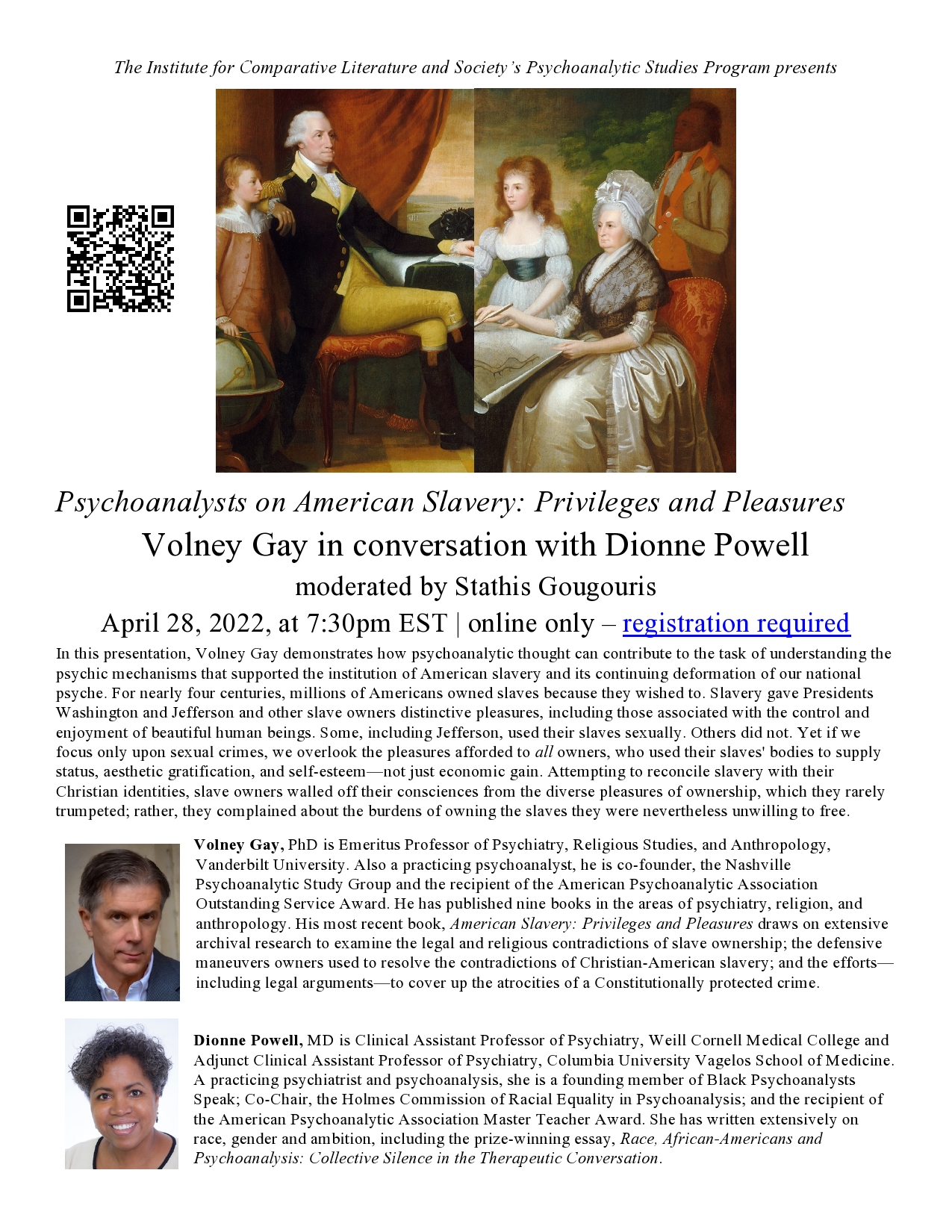
This event will be held virtually. Registration required.
Institute for Comparative Literature and Society
Registration can be found here.
More information can be found in the flyer here.
In this presentation, Volney Gay demonstrates how psychoanalytic thought can contribute to the task of understanding the psychic mechanisms that supported the institution of American slavery and its continuing deformation of our national psyche. For nearly four centuries, millions of Americans owned slaves because they wished to. Slavery gave Presidents Washington and Jefferson and other slave owners distinctive pleasures, including those associated with the control and enjoyment of beautiful human beings. Some, including Jefferson, used their slaves sexually. Others did not. Yet if we focus only upon sexual crimes, we overlook the pleasures afforded to all owners, who used their slaves’ bodies to supply status, aesthetic gratification, and self-esteem—not just economic gain. Attempting to reconcile slavery with their Christian identities, slave owners walled off their consciences from the diverse pleasures of ownership, which they rarely trumpeted; rather, they complained about the burdens of owning the slaves they were nevertheless unwilling to free.
Volney Gay, PhD is Emeritus Professor of Psychiatry, Religious Studies, and Anthropology, Vanderbilt University. Also a practicing psychoanalyst, he is co-founder, the Nashville Psychoanalytic Study Group and the recipient of the American Psychoanalytic Association Outstanding Service Award. He has published nine books in the areas of psychiatry, religion, and anthropology. His most recent book, American Slavery: Privileges and Pleasures draws on extensive archival research to examine the legal and religious contradictions of slave ownership; the defensive maneuvers owners used to resolve the contradictions of Christian-American slavery; and the efforts—including legal arguments—to cover up the atrocities of a Constitutionally protected crime.
Dionne Powell, MD is Clinical Assistant Professor of Psychiatry, Weill Cornell Medical College and Adjunct Clinical Assistant Professor of Psychiatry, Columbia University Vagelos School of Medicine. A practicing psychiatrist and psychoanalysis, she is a founding member of Black Psychoanalysts Speak; Co-Chair, the Holmes Commission of Racial Equality in Psychoanalysis; and the recipient of the American Psychoanalytic Association Master Teacher Award. She has written extensively on race, gender and ambition, including the prize-winning essay, Race, African-Americans and Psychoanalysis: Collective Silence in the Therapeutic Conversation.







